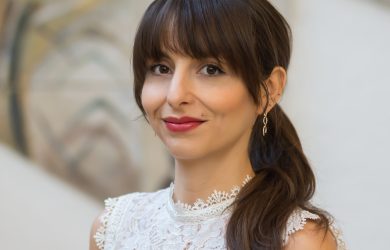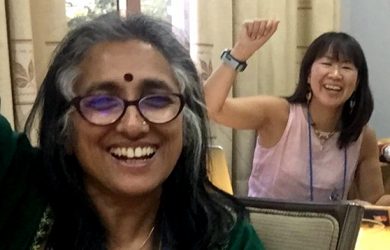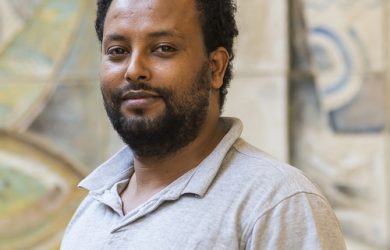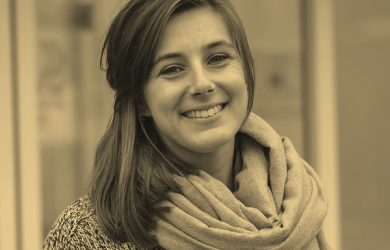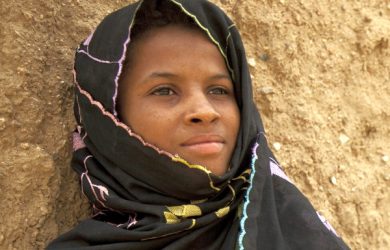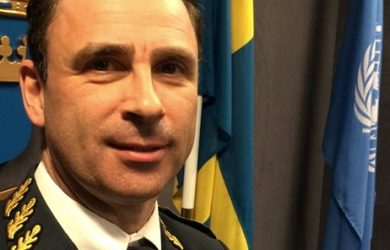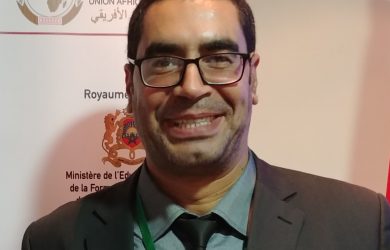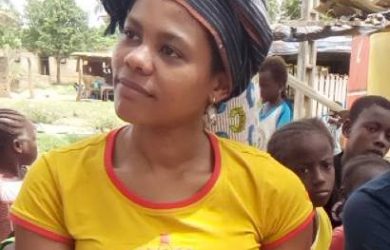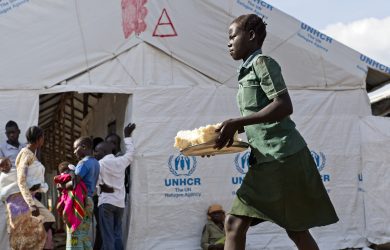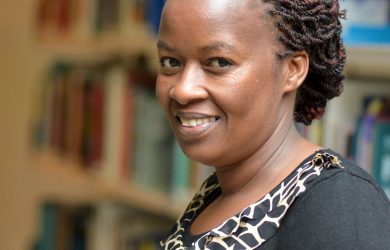- ABOUT US
- RESEARCH
- EDUCATION
- The Graduate School
- PhD Programme
- MSc Programmes
- Capacity Development
- News
- Design and Evaluation of Public Policies (DEPP)
- Design and Evaluation of Innovation Policies (DEIP)
- Evidence-Based Policy Research Methods (EPRM)
- Migration Management Diploma Programme (MMDP)
- Moving the Migration Policy Agenda Forward (MMPAF)
- Online Courses
- Short Courses (Masters)
- Tailor-made programmes
- UNU-MERIT, ITU Academy Training Centre
- Alumni
- Academic Funding
- NEWS
- EVENTS
- PUBLICATIONS
- LIBRARY
Research grants are fuelling my fieldwork: Mariajose Silva Vargas
12 March 2019
My co-author Francesco Loiacono and I won an exploratory grant from Innovations for Poverty Action (IPA) last year, and a small grant from the International Growth Centre (IGC) this year. The first allowed us to travel to Uganda and organise focus group discussions with refugees, firms and other stakeholders. This initial qualitative work helped us in developing and refining our idea. Then the IGC grant will fund our baseline data collection with a sample of urban and rural refugees, as well as ...
Continue Reading →A global nudge for sustainable development: Globelics 2018
06 November 2018
A joint post by Prof. Shyama V. Ramani and Dr. Sanae Okamoto ‘The road to hell,’ goes the age-old proverb ‘is paved with good intentions’. In the 21st century, there can be no clearer example of this than the millions of underused or abandoned toilets in the developing world built for Sustainable Development Goal 6 on Clean Water and Sanitation. Yes, technology and innovation can speed up economic growth and inclusive development, but they are clearly NOT enough. What’s missing, say Prof. Shyama...
Continue Reading →A Nuffic scholarship paved the way to my PhD: Jemal Adem
17 October 2018
I found out about the UNU-MERIT PhD programme through an online scholarship subscription. Initially, I was a bit surprised that governance and economics could be combined to form a single PhD programme – but then I saw how the two tracks work side-by-side in a complementary way....
Continue Reading →Mygration Story: From coast to host across the Mediterranean
12 October 2018
Migration across the Mediterranean is often portrayed as the new societal and political ‘crisis’ of our time; EU nations are struggling to agree over a few rescue boats, while narratives of “invasion” and “call-effect ” have become part of the political discourse. Yet, migration across the Mediterranean is nothing new; in fact, the Mediterranean is one of the most ancient channels of migration. From North to South, East to West, various civilizations have settled and resettled its shores. In fac...
Continue Reading →Extending social protection coverage to refugees: The golden chance of humanitarian assistance
05 October 2018
In line with UN commitments ‘to leave no one behind’, social protection is a strategic approach for cutting poverty and improving resilience, based on strengthening the links between humanitarian aid and development. Extending coordinated social protection provisions to refugees could be the bridge from rapid response measures in crisis situations to medium and long-term development targets as sought by the Social Protection Inter-Agency Coordination Board (SPIAC-B). This post tackles the comple...
Continue Reading →PhD alumnus appointed Force Commander of UN Mission in Mali
04 October 2018
UN Secretary-General António Guterres has appointed Lieutenant General Dennis Gyllensporre of Sweden as Force Commander of the UN Multidimensional Integrated Stabilization Mission in Mali (MINUSMA). Lieutenant General Gyllensporre holds a Doctor of Philosophy degree from Maastricht University, gained in 2010 via our Dual Career Training Programme in Governance and Policy Analysis (GPAC²). His thesis focused on ‘Competing and Complementarity Perspectives on the EU as a Crisis Actor – Manage...
Continue Reading →How to build successful innovation strategies? Focus on communication & consultation
03 October 2018
In our third and final report from the DEIP Innovation Workshop in Morocco, September 2018, we spoke with Omar Elyoussoufi Attou, Head of Innovation at the Moroccan Ministry of Higher Education, Scientific Research and Executive Training. … How can this DEIP workshop help national governments — not only in Morocco but across the African Union? This workshop was an opportunity for us to have a better understanding of the issue of innovation in our countries, across various regions of ...
Continue Reading →Day in the life of a researcher: Connecting actors & (eco)systems
01 October 2018
In this second report from our DEIP Innovation Workshop in Morocco, September 2018, we caught up with Dr. Mafini Dosso, an Ivorian national who works for the European Commission’s Joint Research Centre in Seville, Spain. … We spoke about the pyramid of science communications: about serving the handful of policymakers at the top and the mass of citizens at the bottom. But you also mentioned the disconnect between the two, i.e. the lack of quality science communications in the middle. ...
Continue Reading →Social protection and bridging the humanitarian-development divide
22 August 2018
In light of the World Humanitarian Day last Sunday, August 19, this post argues for the need to revisit humanitarian aid and place it alongside social protection. Recognising that over 140 million people relied on humanitarian aid across 37 countries in 2017, there is an urgent need to take up the discussion and look towards the delivery mechanisms of social protection that allow for more long-term development....
Continue Reading →Land registration in Kenya: Key for development?
17 August 2018
Your PhD revolves around the redistribution of land and its impact on agricultural outcomes; this is timely and relevant given climate change and its impact on food security. Can you elaborate on your dissertation topic? ...
Continue Reading →Archives
Contact
UNU-MERIT
Boschstraat 24
6211 AX Maastricht
The Netherlands
T: +31 43 388 44 00
Email: info@merit.unu.edu
Boschstraat 24
6211 AX Maastricht
The Netherlands
T: +31 43 388 44 00
Email: info@merit.unu.edu
Partner sites
Newsletters
© 2024 UNU-MERIT | Maastricht University


